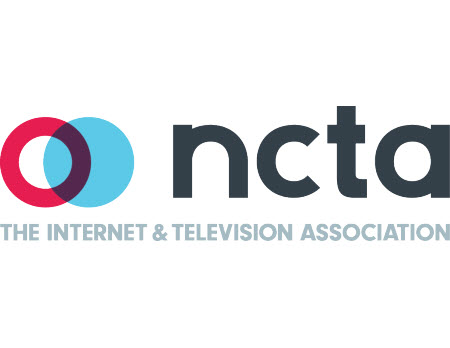NCTA's Powell Hails Broadband Funding in COVID-19 Aid Bill
Stakeholders continue to praise spending priorities

The smarter way to stay on top of the multichannel video marketplace. Sign up below.
You are now subscribed
Your newsletter sign-up was successful
Broadband stakeholders continued to weigh in on the billions of dollars (4& billion to be precise) in new broadband connectivity funding in the COVID-19 relief legislation Congress passed late Monday (Dec. 21).
Also Read: Funding Bills Pass Congress
“The COVID-19 pandemic underscores the importance of broadband and its role in helping Americans stay connected during this public health crisis," said Michael Powell, president of NCTA-the Internet & Television Association. "The COVID relief package rightly focuses on existing broadband gaps and wisely dedicates $7 billion to shrink the digital divide and promote broadband adoption and use. In supporting new pandemic-related assistance for low income families, minority communities and unemployed Americans, Congress importantly recognizes both the value of ongoing private efforts and the virtue of building new support mechanisms that complement and further energize these efforts."
Powell also praised the funding of a congressionally mandated program to come up with better broadband deployment data. "[A]t long last, the COVID relief package provides necessary funding for the development of more accurate broadband maps that will deliver more accurate data, enabling policymakers to better identify unconnected communities and target assistance where it is needed most," he said. "A combination of more accurate maps plus continued refining of how the RUS ReConnect program administers its funding will help ensure that communities without broadband networks are at the front of the line for federal stimulus dollars.”
Also Read: NAB Applauds More Bucks for Broadcasters in COVID-19 Aid Bill
NCTA has consistently said that broadband subsidies should target the unserved, rather than overbuilding in competition with private capital already built out and operating.
“I commend the House and Senate for passing the COVID Relief and Omnibus Appropriations Package, and particularly for including funds for essential broadband services,” said Competitive Carriers Association president Steven K. Berry. “This is a giant step in the right direction. The COVID-19 pandemic has only highlighted the need to ensure that every American, including those in remote and rural areas, have access to mobile broadband services...including $65 million to implement the Broadband DATA Act is key to producing more accurate broadband data maps, so that areas in need have access to critical funds.”
The smarter way to stay on top of the multichannel video marketplace. Sign up below.
“I cannot stress enough the significance of fully funding the Secure and Trusted Communications Networks Reimbursement Program. Carriers with covered network elements now have the assurance they need to move forward with replacing necessary equipment, while still being able to provide seamless coverage to their customers..." The legislation includes $1.9 billion for that reimbursement program, which compensates carriers for replacing equipment from suspect tech suppliers like Chinese telecoms ZTE and Huawei.
“Dedicated funds for broadband mapping, the supply chain reimbursement, low-income broadband, tribal lands and other broadband programs are key to improving the lives of Americans across the country, especially those in rural areas," said Berry.
“We thank Congress for fully funding the Secure and Trusted Communications Network Reimbursement Program as part of its year-end omnibus legislation," said network software provider Mavenir. "This money will provide affected wireless carriers the resources they need to carry out Congress and the FCC’s directives to remove untrusted Huawei and ZTE equipment from their networks. We stand ready to help these carriers upgrade their systems so they can reap the benefits of more secure, flexible, and cost-effective OpenRAN solutions.”
WISPA, the wireless internet service providers association, said: "The support provided within the COVID-19 bill will help WISPs stay up and running, and keep their customers online."
Contributing editor John Eggerton has been an editor and/or writer on media regulation, legislation and policy for over four decades, including covering the FCC, FTC, Congress, the major media trade associations, and the federal courts. In addition to Multichannel News and Broadcasting + Cable, his work has appeared in Radio World, TV Technology, TV Fax, This Week in Consumer Electronics, Variety and the Encyclopedia Britannica.

